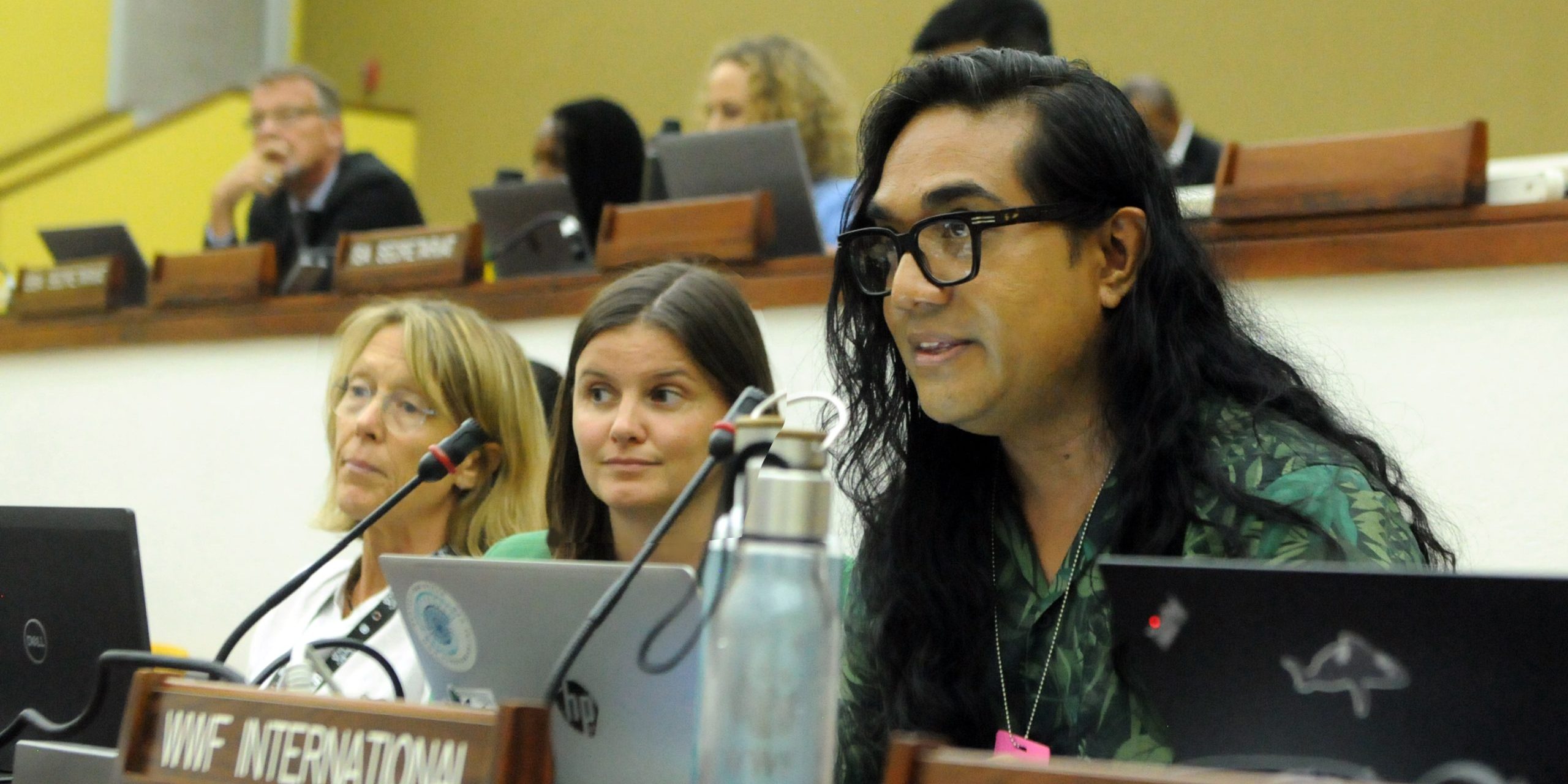A senior Asia–Pacific policy expert is urging global climate negotiators to put indigenous peoples and local communities at the heart of all decisions of the climate talks, warning that the failure to do so risks weakening the world’s response to the climate crisis.
Alfred Ralifo, Asia Pacific Policy Expert for People Powering Biodiversity (PPB) under WWF International, said that climate nature and oceans agenda must be better aligned to deliver meaningful results.
Ralifo said that keeping global warming below 1.5 C remains the defining challenge of the two-week climate talks happening in Belem, Brazil, adding that the country’s Nationally Determined Contributions (NDCs) must reflect the latest and adhere to the International Court of Justice’s recent advisory opinion on states’ climate obligations.
Ralifo said in a briefing with Pacific journalists.
“We also stressed that nature-based solutions — including protection of forests, rivers, oceans, and critical ecosystems — should be formally recognised as core components of global climate actions.
“Achieving the global “30×30” conservation target must be rooted in community-led stewardship, stressing that climate and biodiversity plans such as NDCs, NAPs and NBSAPs should be harmonised to embed these approaches,” he added.
He further emphasised that Indigenous Peoples and local communities remain the frontline stewards of nature, yet are still excluded from key decision-making spaces and financial access.
“They must have direct access to finance, technology, capacity building and recognition of land tenure rights and self-determination,” he stated.
Ralifo said climate finance must flow directly to the frontlines through simplified, equitable mechanisms, particularly benefiting communities, women and youth.
He added that climate adaptation finance must be urgently agreed upon, with the Global Goal on Adaptation operationalised in a way that elevates community-led solutions.
A just transition, he said, requires that “no one is left behind”, with national energy and adaptation plans prioritizing equity, human rights and nature-positive livelihoods.
Ralifo also pointed to the ICJ’s landmark Advisory Opinion of July 2025, which clarified that states have binding legal obligations to prevent significant climate harm and uphold human rights.
The opinion warns that failing to reduce emissions or continuing fossil fuel subsidies could amount to internationally wrongful acts.
He said the ruling reinforces the urgency for COP30 to embed nature-based and community-led solutions into all national climate plans, adding that PPB will advocate strongly for countries to align their decisions with these legal obligations.
Meanwhile, the World Wide Fund for Nature (WWF) has released its expectations for the Thirtieth Conference of the Parties (COP30) this week calling for urgent and decisive global action to keep the 1.5°C goal within reach as climate impacts intensify across vulnerable regions, including the Pacific.
In its overview, WWF stressed that strengthened Nationally Determined Contributions (NDCs) must be submitted well ahead of COP30.
The organisation says these updated commitments should align with the results of the Global Stocktake and the objectives of the Paris Agreement.
WWF is urging parties to close remaining gaps through both national and multilateral initiatives, backed by stronger implementation mechanisms and support systems.

A robust Nature Package is also among WWF’s priorities. This package aims to halt deforestation and curb ecosystem conversion, which remain major drivers of biodiversity loss and climate vulnerability.
On the energy transition, WWF is calling on governments to agree on measures that ensure an equitable and just shift away from fossil fuels.
This includes scaling up renewable energy, improving energy efficiency, and guaranteeing universal access to clean energy.
WWF further emphasised the need to finalise adaptation indicators under the UAE Framework for Global Climate Resilience, urging increased action and support to strengthen communities facing escalating climate impacts.
The organisation is also pushing for a stronger and more effective Global Climate Action Agenda.
WWF said enhanced capacity and adequate financial instruments are crucial to closing the gaps in mitigation, adaptation, and resilience worldwide.
With COP30 approaching, WWF’s expectations highlight the urgency for ambitious climate commitments—particularly for small island developing states such as Solomon Islands, where climate threats continue to pose serious risks to communities, ecosystems, and livelihoods.
‘This story was produced as part of the 2025 Virtual Climate Change Media Partnership, a journalism fellowship organized by Internews’ Earth Journalism Network and the Stanley Center for Peace and Security’.
By ULUTAH GINA
Solomon Star, Gizo
Photo credits: Earth Journalism Network (EJN)









